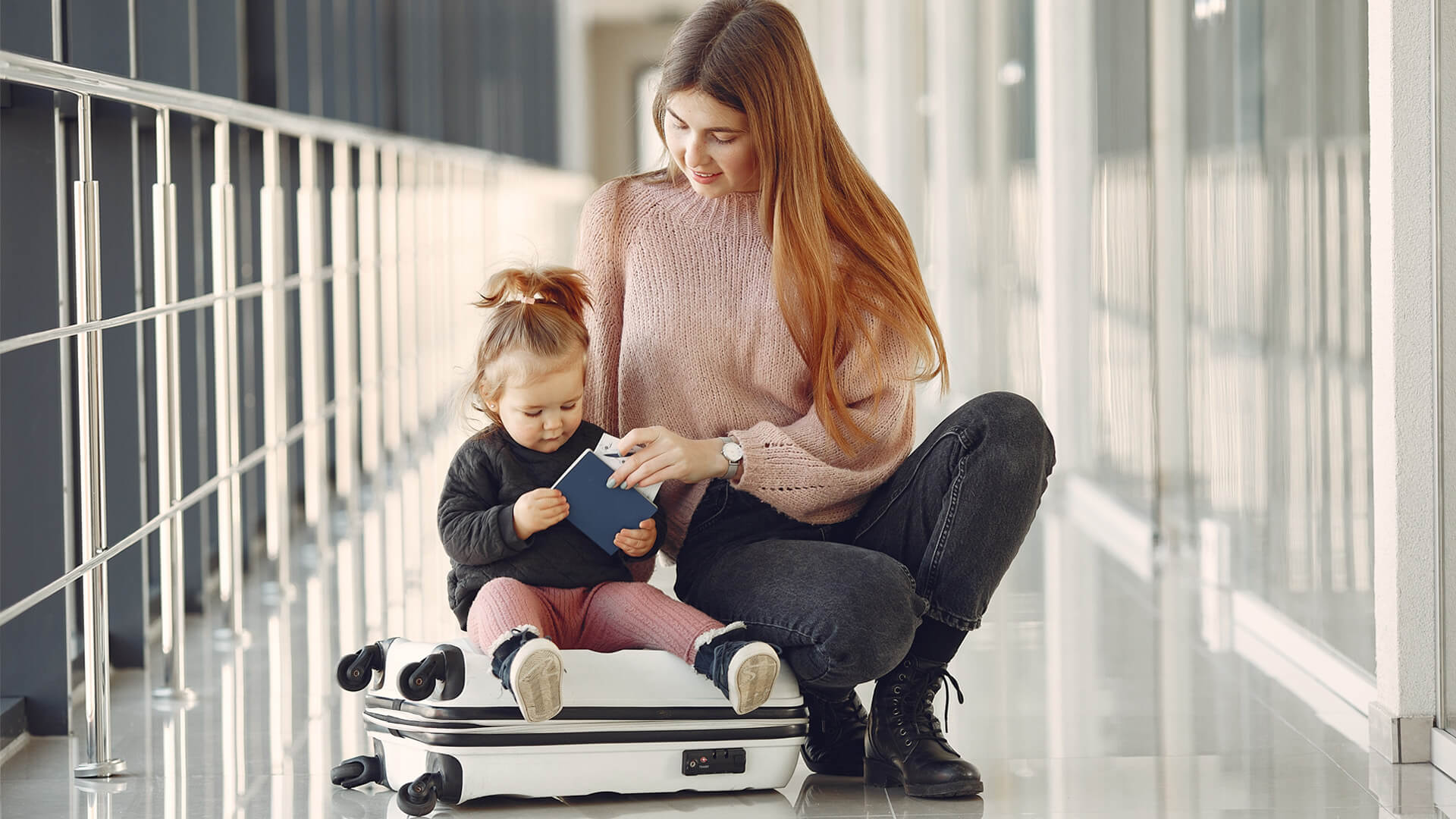Traveling with children can be a richly rewarding experience, creating lifetime memories and broadening their horizons. But the thought of navigating airports with strollers, days of car travel, and disrupted routines with tiny tots in your wake can make many parents flee. The bright side is that by doing a little creative planning and keeping an open mind, you can defuse travel stress and enjoy your trip as much as everyone else.
This guide gives you practical tips for planning and managing your trips with your children, transforming potential chaos into enriching adventures. From packing to entertainment, everything is in one place.
-
Plan and Prepare Like a Pro
Extensive planning is your best defense against travel meltdowns.
- Choose Kid-Friendly Locations and Lodgings: Choose locations and accommodations that are family-friendly, offering activities like kids’ clubs, pools, or big family rooms. Consider travel time and travel within the time zone, especially for small children.
- Enlist Your Kids (Age-Specific): Plan the trip with your children ahead of time. Show them pictures of where you will be going and describe what you will be doing. Even older children can help pack their small suitcases, making them feel responsible and eager.
- Book Strategically: When flying, book nonstop flights or those with decent layovers. On long drives, include frequent breaks at parks or rest stops where kids get to stretch. If your child is very young or resistant to breaking from routine, careful planning of their comfort and adjustment needs is essential. Disturbances occasionally cause uneasiness, like in the case of separation discussed in our guide on how to manage separation anxiety in children.
- Pack Smart, Not Heavy: Create a considerate packing list. Include essentials like favorite snacks, comfort items (a special teddy or blanket), first-aid supplies (band-aids, painkillers, antiseptic wipes), and any medicines that may be needed. Don’t forget chargers for electronics!
-
Master the Art of Packing
Careful packing can be a lifesaver.
- Carry-On Essentials: Your carry-on can function as a survival kit. Bring a spare outfit for each child (and maybe one for yourself as well!), plenty of snacks, wet wipes, hand sanitizer, necessary medications, and a great mix of entertainment.
- Snacks, Snacks, and More Snacks: Grumpy kids are often hungry kids. Bring plenty of healthy, non-messy snacks such as fruit slices, crackers, cheese sticks, and granola bars. Bringing familiar foods can also be reassuring in strange places.
- Entertainment Arsenal: For younger children, small toys, coloring books, and stickers do the trick. For older ones, tablets full of games, films, and books are lifesavers. Don’t forget the headphones! Even “I Spy” style games can be entertaining, and time passes occasionally. Having an idea of what stage of development your child is at will help in choosing the right activities; our antenatal counseling services can also help you with what it’s like to prepare for a baby’s needs, some of which translate into toddlerhood comforts.
-
Guiding the Voyage
By airplane, train, or car, keeping children happy along the way is most important.
- Adopt Flexibility: Traveling never runs exactly on schedule. Anticipate delays and attempt to keep a cool, upbeat demeanor – your children will tend to reflect your mood.
- Manage Expectations: Don’t expect your child to be a perfect angel throughout. There will likely be restless or impatient moments. Build in some extra time so you’re not rushing, which causes everyone to get uptight.
- Screen Time Strategically: Even if screen time is restricted at home, travel days are generally an exception. A well-timed movie or game can be a nice distraction when stuck for a long stretch.
- Manage Discomfort Early: Ear pain on flying due to pressure shifts may sound frightening. Make infants suck or breastfeed during takeoff and landing. Older children can chew gum or hydrate. For any medical issues that might arise, especially with newborns or toddlers, knowing you can consult with a legitimate expert like Dr. Olfa, a renowned neonatologist in Dubai, offers comfort.
-
Acclimatizing and Enjoying Yourself at Your Destination
Upon arrival, help your child acclimate to the new environment.
- Keep Routines Loose (to some degree): This is a holiday, but try to maintain some semblance of your child’s usual nap and bedtime schedules. This can work to reduce overtiredness and tantrums. Familiar routines are comforting, just as a routine goodbye helps with daily separations.
- Childproof Your Accommodation: Sweep through your hotel room or rental quickly for any hazards, especially if you have a little adventurer.
- Plan Downtime: Don’t overbook your days. Children need downtime to unwind and play unstructured. Sometimes the very simplest experiences, like playing in a hotel pool or building a sandcastle, are the most cherished memories. Just as when we discuss the importance of balance in life in preventing conditions like Pediatric Metabolic Syndrome, it’s also necessary to find a balance of activity and rest when traveling.
- Stay Healthy and Hydrated: Ensure everyone remains well-hydrated, especially on hot days. Continue offering nutritious food choices, but allow some vacation splurges also.
Final Thoughts: Seize the Adventure
Travel with kids will never be tidy, but it’s also a wonderful opportunity to bond as a family and familiarize yourself with the world as a whole. The annoyances are often balanced out by the excitement of exploration and collective memory. By being prepared, adaptable, and optimistic, you can make your family trips less complicated and more enjoyable for everyone.
Need expert guidance for traveling with an infant or have other child health questions?
Dr. Olfa Koobar offers comprehensive pediatric services and is happy to provide your family’s health and wellness, whether at home or away. Call for a consultation today to discuss your child’s unique needs with Dr. Koobar.




